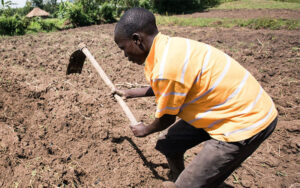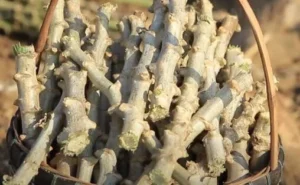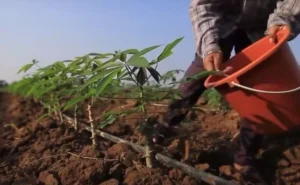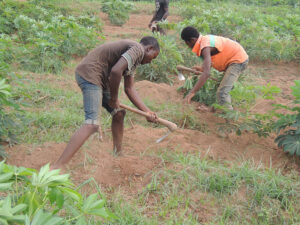Introduction to Planting Cassava
Cassava is a hardy, drought-tolerant root crop that thrives in tropical and subtropical regions. Known for its resilience and ability to grow in poor soils, cassava is a staple food for millions of people worldwide. Planting cassava is relatively simple, as it’s typically grown from stem cuttings rather than seeds. The crop requires well-drained soil and warm temperatures, and while it is low-maintenance, careful attention to planting depth, spacing, and weeding ensures better yields. Cassava can be harvested in 8-12 months, providing a valuable source of carbohydrates and a vital food security crop for many communities.
- Clear the land of any weeds, debris, and other obstacles.
- Plow or till the soil to a depth of 25-30 cm to loosen it and improve drainage.

- Test soil pH and fertility levels: Cassava plants prefer slightly acidic to neutral soil with a pH range of 5.5-7.
- Apply organic manure or fertilizers as recommended by soil test results.
- Select healthy cassava stems from mature plants.
- Cut the stems into 20-25 cm lengths with 4-6 nodes each.

- Mark planting spots: with appropriate spacing (about 1 meter apart in rows).
- Plant stem cuttings: at an angle or vertically, burying two-thirds of the length in the soil.


- Regularly inspect: for pests and diseases

- Water the plants: if necessary, especially in the dry season.

- Weed control: by manual weeding or using appropriate herbicides.

- Continue weeding as necessary.
- Monitor for pests and diseases and take control measures.
- Apply additional fertilizers if required.
- Regular monitoring of plant health.
- Stake taller plants if they begin to fall over.

- Ensure proper water supply during critical tuber development stages.
- Inspect for signs of tuber formation.
- Ensure proper water supply during critical tuber development stages.
- Inspect for signs of tuber formation.
- Assess maturity by checking if leaves turn yellow and begin to drop.
- Harvest cassava tubers by carefully digging around the base of the plant and lifting the roots.
- Process harvested tubers immediately or store them properly to prevent spoilage.

Accordion Content
